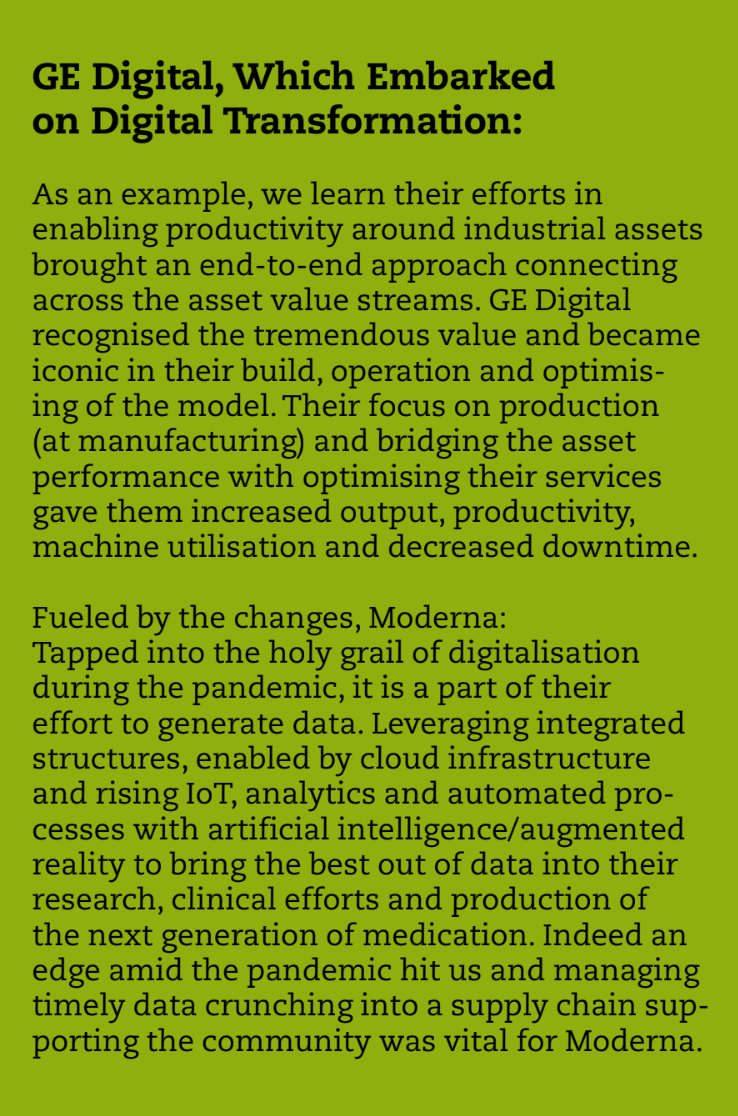Transformation of traditional manufacturing relationships, supported by smart factories and multiple facets of advancements in supply chain management, have become markers of the new face of digital industrialisation. So when we see disruption on our horizon, we need to start recognising a big market, noting that change is coming, business models will fundamentally change, and technology will be the constant driver.

Industry 4.0 is not an exception to the eras of the past industries, but it is expected to bring immense benefits and many challenges. Recently, most stakeholders are raising their hands in concerns about cyber security risks because Industry 4.0 has automation and IoT as the backbone. Moreover, the technological advancement and development rate in Industry 4.0 is faster; thus, anticipating the challenges and benefits is much more complex than experienced in previous industrial revolutions.
Therefore, technological and business-driven innovative solutions are not going to be enough. Innovation in its broadest sense is the key solution, particularly social innovation. The same drive to innovate technologies to increase productivity can also be utilised to improve the welfare and societal needs of the world population.
The concept of social innovation denotes the processes and factors that lead to a sustained positive transformation of the network society. Many known innovations can be classified as social innovations, for example, sustainable solutions to environmental problems, health insurance, new learning models, and transportation facilities. Social innovation flourished recently as a promising mechanism to tackle the inefficiency of the existing policies and models targeting the most pressing global issues such as chronic diseases, climate changes, and inequality.
This new economic paradigm makes the Internet (and data) a way to create value for people and societies and not only serve as a communication channel. Industry 4.0 makes the world more digital, connected, flexible, and responsive. As a result, well-known social relationships are changing beyond recognition; we are moving from business-to-consumer relationships to peer-to-peer modes.
The amount of data flowing in and out of even our mobile devices brings the loss of control over data, and the new connectivity discloses our personal lives more. For example, the revolution in biotechnology redefines what it means to be human by changing the threshold of life period, health, and cognition, which also forces us to redefine our moral and ethical boundaries. Thus, a key challenge for government, policymakers, and society is how do we make a difference and shift the industry and society's culture to tackle the technological disruptions associated with this new industrial era.
The industrial revolutions were often remarked on as failing to address the most pressing issues facing modern societies. These include climate change, chronic diseases, and inequality. With the transition to Industry 4.0, policymakers should consider its global impact on current and potential social problems through the social dimensions of new technologies.
A good base to start with is using the sustainability concept in its totality, which exceeds the emphasis of meeting the requirements of present generations without compromising the ability of future generations. In addition, technological and social innovation are key drivers in providing sustainable solutions that meet the three key sustainability criteria (economic, social, and environmental) and can act as an assessment mechanism for any related developments of Industry 4.0.
For Malaysian organisations with an aggressive next step to make sustainable initiatives an integral part of the business transformation, the integrated framework as a filter provides guidance to scrutinise technology developments coming out of Industry 4.0. It also emphasises the reciprocal roles of technological and social innovations with an inclusive approach to designing a creative platform. This creative platform can and should include experts from multi-disciplines, including economists, social scientists, environmentalists, futurists, artists, and other creative people who align with this framework and bring forth novel solutions.
Malaysia's multi-cultural society should benefit from such industrial transformation because we are connected mainly as consumers and producers. Therefore, we can participate in the production and consumption process to make this world a better place.

Industry 4.0 is changing lives through improved products and services, road safety, better working conditions and even healthcare







